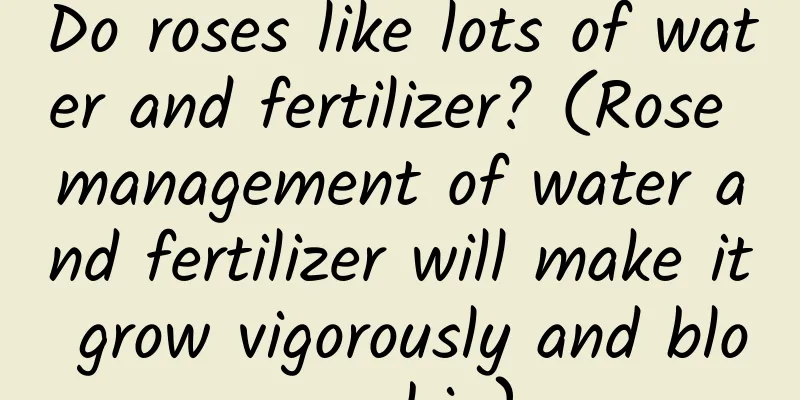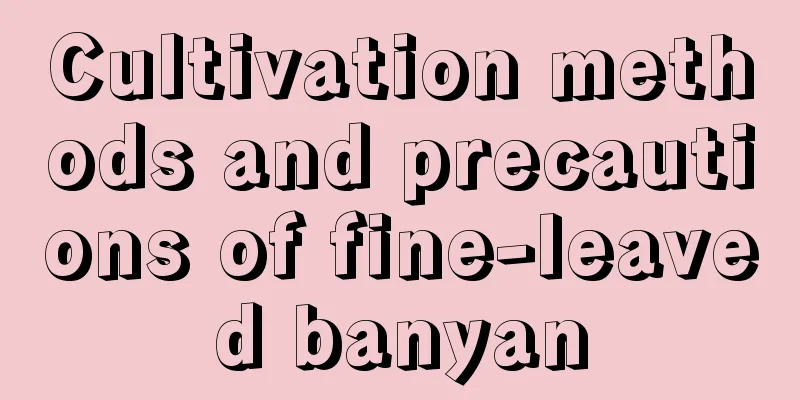Do roses like lots of water and fertilizer? (Rose management of water and fertilizer will make it grow vigorously and bloom big)

What does it mean to water and fertilize roses a lot?The four words "big water and big fertilizer" are really simple and crude. The reason why some people proposed "big water and big fertilizer". It is just a simple summary of the water and fertilizer requirements of roses. It is undeniable that roses grow faster than other flowers, so water and fertilizer naturally need to be "large". If this "large" is unlimited, it is obviously irrational and unreasonable . Regarding the water and fertilizer management of roses, I prefer a rigorous and reasonable method, rather than simply summarizing it with "large amounts of water and fertilizer". Depending on the planting method, ground planting and potted planting are different, and the watering and fertilization are different for different growth periods. Below I will introduce different watering and fertilizing methods for potted roses and ground-planted roses for your reference. How to water and fertilize potted rosesPotted roses are the most commonly used planting method, and they can be done with just one flowerpot. The advantage of potted plants is that they are convenient and simple, but for rose growth, due to the limitation of pot soil, they cannot provide enough nutrients. Therefore, watering and fertilizing are a little more complicated. 1. Pot soil affects watering frequencyWhen it comes to watering, we can't just care about watering, but make a simple inference, where does the water come from - the soil, so the water retention and permeability of the soil determine how we water and how often we water. Generally, for soil with good water retention, we should not water too frequently. Too frequent watering will easily cause water accumulation and root rot. For soil with poor water retention, we should be careful not to lack water, otherwise drought will also affect the growth of roses. 2. Ensure sufficient water without water accumulationA simple watering principle is "water when dry and water when wet", which means watering after the soil in the pot is dry, and watering thoroughly when you do. There are three ways to determine the standard of dryness. First, look at the color of the soil. When the surface of the soil turns white, it is time to water it. Second, feel the weight of the flower pot. A light flower pot contains less water. Third, when you knock on the flower pot, if it makes a muffled sound, it means the water content is high; if it makes a crisp sound, it means the water content is low. The first method is the simplest, while the latter two require some experience. 3. How to choose the watering time for potted rosesWhether watering in the morning, at noon or at night, we need to consider the consistency of water temperature and soil temperature. Just like we need to wash our faces with hot water in winter, plant roots also need a comfortable feeling. In spring and autumn, you can water in the morning, noon and evening. In summer, water in the morning and evening, and in winter, water when it is warm at noon. 4. It is more reasonable to fertilize potted roses with thin fertilizers and apply them frequentlyRoses have a great demand for nutrients. If you simply apply fertilizer according to the principle of "large amounts of water and fertilizer", without controlling the amount of fertilizer, it is easy to cause fertilizer damage, which will cause great harm to roses, and it will take a long time to recover from a fertilizer damage. The method of applying small amounts of fertilizer frequently can avoid fertilizer damage to a large extent. Specific fertilization method During the growing period of roses, apply thin fertilizer every 7-10 days. If using organic fertilizer water, it can be diluted 10-20 times. If using chemical fertilizer, apply about ten to twenty fertilizers at a time or dilute it 500-1000 times. 5. Apply different fertilizers to potted roses at different growth stagesThe nutrient requirements of roses are different in different growth stages. The demand for nitrogen fertilizers is higher during the branch and leaf growth stage, while the demand for phosphorus and potassium fertilizers is higher during the bud formation and flowering stages. Therefore, you cannot use a single fertilizer to fertilize roses. You should apply different fertilizers according to different growth stages. How to water and fertilize ground-planted rosesGround-planted roses have obvious advantages over potted roses. For ground-planted roses, it is more important to choose a suitable planting location, and the most important thing is to have sufficient light. Light has a huge impact on photosynthesis. Only as much light as possible can ensure sufficient nutrient conversion and meet the nutritional needs of roses. |
Recommend
What flowers are suitable for growing in Benxi? What are the city flowers and trees?
1. Benxi's climate characteristics Benxi has ...
How long does gardenia bloom? How to care for it after flowering?
Gardenia is a famous traditional flower in China....
Can the Custard Apple tree be propagated by cuttings?
There are many ways to propagate the sugar apple ...
Is Gardenia suitable for the living room?
1. Is it suitable? Whether it is suitable for the...
Basic knowledge on how to grow orchids for beginners (three keys for beginners to grow orchids well)
①First, choose the right orchid planting material...
If you add some of this stuff to the soil, the flowers will not die for 50 years!
plant ash Wood ash is the ashes left from burning...
Autumn kidney bean planting time and method
Autumn kidney bean planting time Autumn beans are...
Lily Flower Language
1. Flower Language Lilies come in more than one c...
How to identify the rich
1. Blades The leaves of the Chinese phoenix are e...
How to water Tillandsia
How to water Tillandsia Tillandsia needs water. A...
Is Jade Dew poisonous? Can I grow it at home?
Is Jade Dew poisonous? Can I grow it at home? Flo...
How to grow verbena
1. Soil Verbena is not very demanding on the soil...
Cultivation methods and precautions of Ficus microcarpa
The golden fig has one leaf with multiple colors ...
When is the best time to sow kale seeds?
Kale seed sowing time Kale can be planted and sup...
Is the traveler's banana suitable for indoor cultivation? How to grow it?
1. Is it suitable for indoor breeding? The travel...









